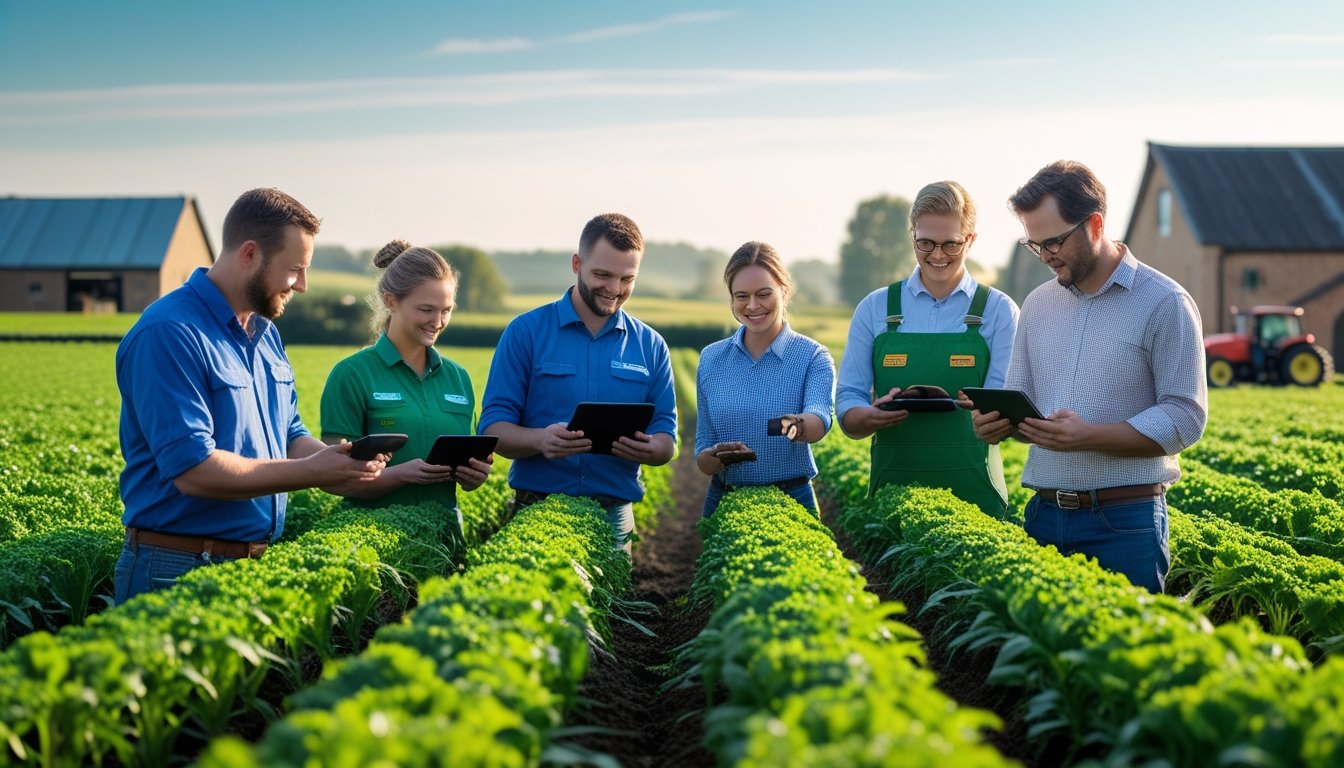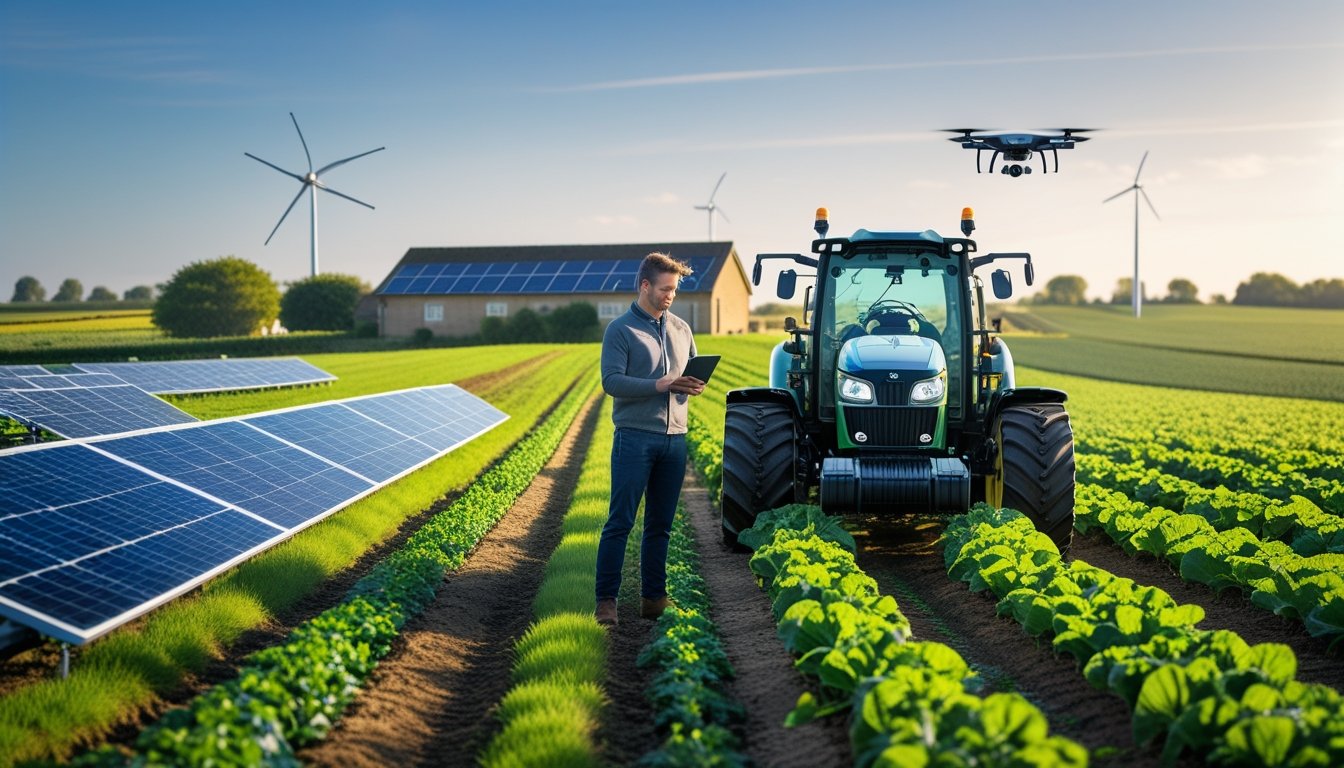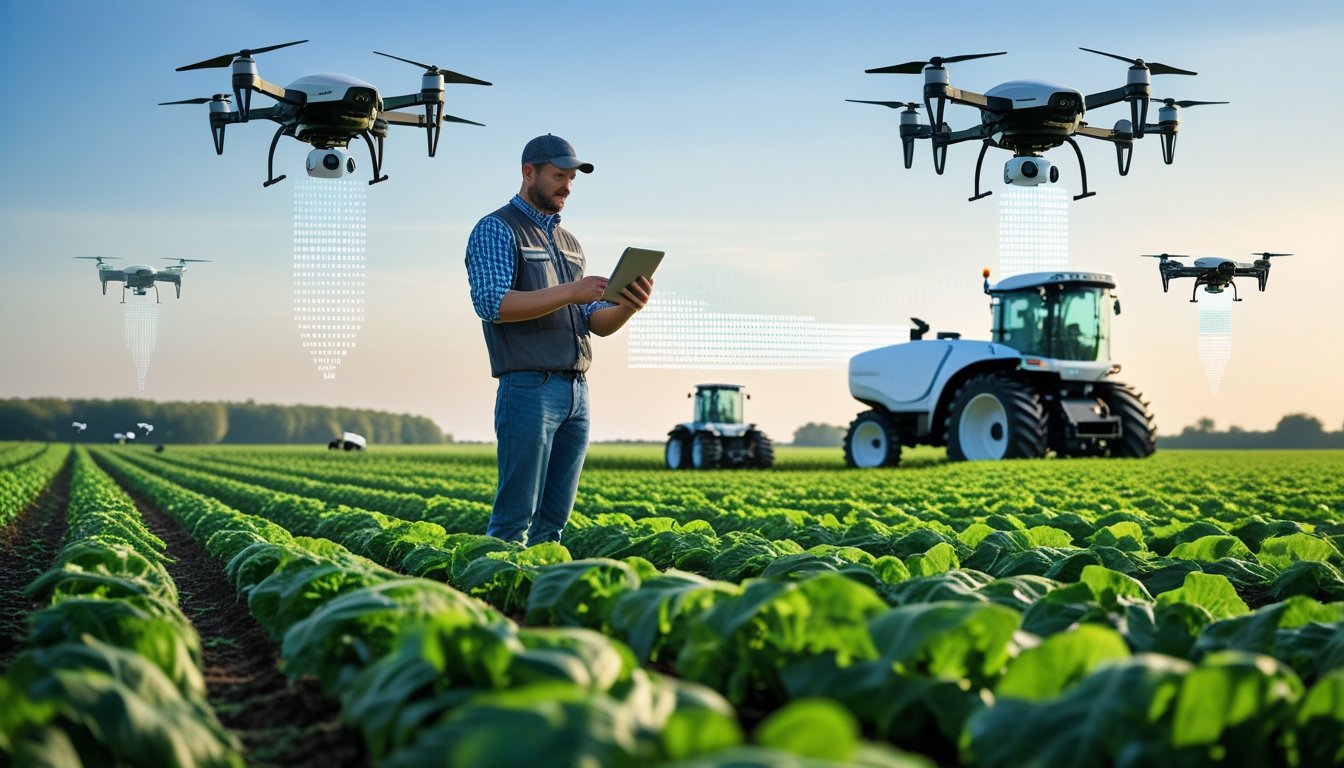Late updated: 19 May 2025 08:05
Written by: Oliver Bennett
Revolutionising Rural UK's Digital Farming Practices: Advancements and Impact
Revolutionising digital farming in rural UK is not just about adopting new technologies; it's about transforming the entire agricultural landscape to meet modern demands. Digital innovations in agriculture promise to enhance productivity, efficiency, and sustainability across the sector. As we explore these advancements, the dramatic impact on rural communities and the agricultural economy becomes clear.

Precision farming technologies are providing farmers with unprecedented insights into crop management, helping to boost yields and reduce waste. Advanced tools, supported by improved broadband connectivity, empower rural businesses to leverage data effectively, making informed decisions that lead to more sustainable practices. This shift is not only increasing efficiency but also opening new avenues for growth and sustainability in the rural economy.
As digital tools continue to evolve, they support a new era of farming that aligns with environmental goals and meets the challenges of a changing world. Those equipped to embrace these innovations are at the forefront of a revolution that is reshaping rural UK agricultural practices for the better.
Key Takeaways
- Digital farming transforms rural agriculture by enhancing productivity.
- Precision farming tools offer valuable insights leading to better crop management.
- Connectivity and technology drive sustainable farming practices.
Transformation of Rural Digital Farming in the UK
The digital farming landscape in the UK is undergoing a remarkable transformation driven by advanced technologies. Agritech startups are spearheading initiatives, tapping into AI and IoT to optimise efficiency.
Emergence of Advanced Technologies
In recent years, advanced technologies have become pivotal in revolutionising the UK's rural farming sector. Digital farming is seeing the adoption of cutting-edge tools, and this shift is transforming traditional practices.
Agritech startups are key players in this movement. They leverage new technology to enhance productivity. This transformation includes automation, precision agriculture, and improved data analytics.
Scotland is leading several of these advancements, with various projects focusing on integrating modern solutions into farming.
Integrating AI and Robotics in Farming
The integration of AI and robotics has introduced significant efficiencies in rural farming. AI systems help in predicting weather patterns, and guiding planting schedules and harvesting activities with precision.
Robotics take on repetitive farming tasks, thus reducing manual labour demands. Robots can plant, irrigate, and harvest with accuracy, minimising waste and human error.
AI-driven platforms also provide insights into crop health, allowing farmers to make informed decisions quickly.
Adoption of IoT Devices and Sensors
The use of IoT devices and sensors is rapidly expanding across rural farms, enabling real-time monitoring. These tools provide critical data related to soil moisture, temperature, and crop health.
Sensors mounted on drones or placed in fields transmit valuable data, accessible via smartphones or computers. This connectivity facilitates better-informed decision-making and resource management.
Through the Internet of Things, farms can operate more sustainably, responding swiftly to environmental changes. This technology creates a connected farm ecosystem, where each device communicates to optimise farming operations.
Key Innovations and Sustainable Practices

Our exploration of rural UK's digital farming needs to highlight the intersection of technological advancements and sustainable practices. By adopting innovative tools and methods, we can significantly enhance efficiency, environmental sustainability, and food production capacity.
Precision Agriculture and Smart Farming
Precision agriculture and smart farming employ advanced tools like GPS and yield monitoring systems. These innovations enable farmers to manage their fields with pinpoint accuracy, optimising resource utilisation.
We can monitor soil health and crop growth, making it easier to apply fertilisers and pest control measures only where needed. This not only boosts crop yields but also reduces environmental impact. By enhancing field mapping and spatial data analysis, precision farming supports sustainable agricultural practices, preserving biodiversity and local ecosystems.
Remote Sensing, Drones, and Satellite Imaging
The integration of remote sensing technologies, including drones and satellite imaging, revolutionises how we monitor agricultural environments. Drones provide detailed, real-time images of fields, which help in identifying issues like pest infestations or water stress.
Satellite imaging complements this by offering a broader view, supporting climate change adaptability and resource allocation. Remote sensing allows precise crop monitoring, aiding in timely decision-making and thus sustaining high yield levels while fostering sustainable farming practices.
Data Analytics, Big Data, and Blockchain Integration
Data analytics and big data play a pivotal role in transforming farming into an information-driven field. They help us make informed decisions on everything from planting schedules to irrigation needs. Efficient data management services enable farmers to handle large datasets effectively.
Blockchain integration adds a layer of transparency and traceability that boosts trust in sustainable food production. By employing these technologies, we enhance food safety and security, ensuring a reliable food supply chain from the farm to the consumer.
Enhancing Food Production and Security
Enhancing food production while ensuring security requires a multi-faceted approach. Smart farming techniques, enhanced by digital tools, allow us to increase productivity without compromising sustainability. For instance, precision irrigation systems conserve water while improving crop health.
Strategic pest and disease management minimise losses, contributing to abundant harvests. By leveraging blockchain, we ensure data integrity and traceability, which are essential for building consumer trust and maintaining ecosystem balance. This forward-thinking approach ensures that our agricultural practices remain sustainable and resilient against future challenges.
Frequently Asked Questions

Digital farming is transforming agriculture by incorporating advanced technologies to enhance efficiency and productivity. Our focus here is on how these innovations are being applied in rural UK's farming practices, exploring various facets of digital advancements.
How can digital technology enhance crop management in rural UK farming?
Digital technology allows farmers to monitor soil conditions, weather patterns, and crop health through sensors and satellite imagery. This real-time data helps optimise watering, fertiliser application, and harvesting schedules. It results in higher yields and reduced resource wastage.
What are the primary benefits of implementing smart farming solutions in the UK?
Smart farming solutions enable precision agriculture, leading to efficient resource usage and increased productivity. These technologies also support sustainability by reducing the environmental footprint. Farmers can make informed decisions, improving profitability and contributing to a resilient food system.
In what ways can data analytics improve livestock health and productivity?
Data analytics enables continuous monitoring of livestock health through wearable devices and sensors. By tracking vital signs and behaviour, farmers can detect illnesses early and optimise feeding routines. This improves animal welfare and boosts productivity by ensuring timely interventions.
What role does internet connectivity play in remote farming operations?
Reliable internet connectivity is crucial for accessing digital farming tools and platforms. It facilitates real-time data transfer and cloud-based analytics, enabling remote monitoring and decision-making. Connectivity also supports communication with experts and suppliers, enhancing overall farm management.
How can government policy support the adoption of digital farming practices?
Government policy can provide subsidies and incentives for adopting digital technologies. Additionally, investing in rural broadband infrastructure and offering training programmes can empower farmers. Creating a favourable regulatory environment encourages innovation and eases the transition to digital farming.
What are the major obstacles to digital transformation for farmers in rural areas?
Farmers in rural areas face challenges such as limited internet access and high costs of technology adoption. Lack of technical knowledge and support can hinder adoption too. Overcoming these barriers requires collaboration between government, tech providers, and the agricultural community.
